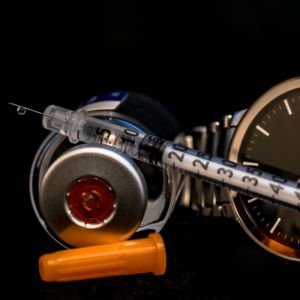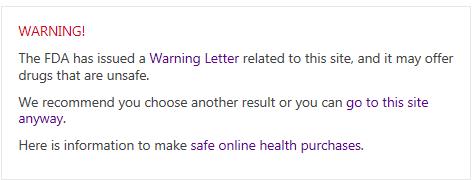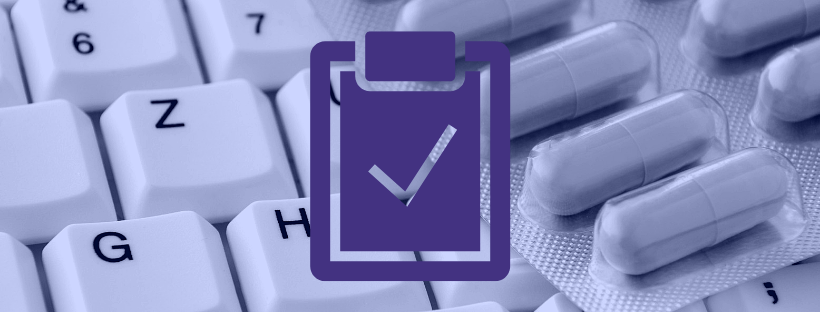by Gabriel Levitt, President, PharmacyChecker.com and Prescription Justice | Jul 26, 2019 | Online Pharmacies
PharmacyChecker has proudly announced a new online pharmacy verification tool to make it easier for consumers to determine if a website is safe and accredited through the PharmacyChecker Verification Program. This verification portal can benefit patients, health care providers and caregivers considering lower-cost retail pharmacy options in Canada and other countries.
As we emphasized in our press release about the new portal, pharma-funded initiatives, like the
“.Pharmacy Program” of the National Association of Boards of Pharmacy (NABP), do not help Americans seeking lower-cost and safe medicine from Canada and other countries. The NABP advises Americans not to buy and import medication. The stated intent of the NABP’s “.Pharmacy Program” is to help consumers find “legitimate” online pharmacies, which are ones that have registered a “.pharmacy” domain (e.g., Walgreens.pharmacy, Kroger.pharmacy, Walmart.pharmacy). Such household name U.S. online pharmacies are usually ones approved in the NABP’s Verified Internet Pharmacy Practice Sites (VIPPS) program.
(more…)
Tagged with: National Association of Boards of Pharmacy (NABP), PharmacyChecker Verification Program, VIPPS
by Gabriel Levitt, President, PharmacyChecker.com and Prescription Justice | Jun 18, 2018 | Drug Safety
 I write this post about insulin with ambivalence and frustration, but also hope. The diabetes patient and activist community is rightfully seething, screaming at the top of their lungs about high insulin costs in America. One young man stands out in my mind. He recently died because he could not afford his insulin, and now his mother bravely speaks out about her son’s death—an example of why drug prices are a national crisis.
I write this post about insulin with ambivalence and frustration, but also hope. The diabetes patient and activist community is rightfully seething, screaming at the top of their lungs about high insulin costs in America. One young man stands out in my mind. He recently died because he could not afford his insulin, and now his mother bravely speaks out about her son’s death—an example of why drug prices are a national crisis.
In a March article in Insulin Nation, the journalist/editor Audrey Farley and I discussed the issue of buying more affordable insulin online from pharmacies located in Canada and the U.K. She found that many of her readers were doing so and wanted to let them know how to go about it safely.
One carton of Lantus Solostar (5 pens of 3ml each), a long-acting insulin made by Sanofi Aventis in Germany, goes for about $430 at a CVS in Brooklyn, New York. At Rexall Drugs in Toronto, the price is $84.99. That’s 80% less. Until recently, a small number of Canadian pharmacies in our Verification Program sold it for about $180. The online Canadian price is higher because of the fees associated with special packaging and shipping – but it’s still 56% less than the U.S. price. For those prices, Americans living with diabetes could save a couple of thousand dollars a year; and those who can’t afford it here at all could stay alive.
Insulin is a temperature-sensitive medication and, because of that, requires significant precautions when shipping. To prevent it from degrading requires special packaging. Effective patient communication is also necessary. Because of our recent updates to our refrigerated medications policy, one that places stricter requirements on pharmacies in the PharmacyChecker Verification Program, most will likely choose not to sell insulin to Americans— at least not for a while. Here’s why… (more…)
Tagged with: #insulin4all, FedEx, Insulin, PharmacyChecker Verification Program
by Gabriel Levitt, President, PharmacyChecker.com and Prescription Justice | Aug 10, 2015 | FDA, Medication non-adherence, Online Pharmacies, Personal Drug Importation
Last week, Bing announced a new effort to use its search engine to warn consumers about threats from “fake” online pharmacies. The big problem is that at least some of the online pharmacies they list are not fake, but represent very real, licensed pharmacies, ones that require valid prescriptions and have been safely helping Americans afford medication for years. We know this because these pharmacies have been carefully evaluated, inspected, and monitored by us at PharmacyChecker.com, and meet high standards of pharmacy practice. See our standards: http://www.pharmacychecker.com/verification_program_guide_and_standards_1_3.pdf.
The online pharmacies targeted by Bing, which are approved in our program, are all located outside the U.S. Curtailing online access to lower cost and safe foreign medication using scare tactics is a strategy employed by the pharmaceutical industry. Indeed, Bing’s action seems to have a lot to do with stopping safe personal drug importation and will recklessly alarm Americans so they don’t buy more affordable medication from other countries.
Here is the warning which appears when a consumer’s Bing search results include links to one of these online pharmacies and they try to click on the link to that online pharmacy:

To choose the pharmacies it targets, Bing is relying on a list of online pharmacies which have received warning letters from the FDA. But, in at least several cases, these warning letters, which you can find on the FDA’s website, do not indicate a pharmacy to be fake, nor do they pertain to sales of counterfeit or adulterated medications, nor to any problems with the pharmacy meeting good standards of practice. Instead they relate to 1) sales of lawfully manufactured generic versions of drugs that are still on patent in the U.S., and 2) medications that are approved in Canada but not in the U.S. We will examine each of these letters fully over the next week, but our initial review indicates that these issues have been addressed by the online pharmacies in our Verification Program that received the letters.
The genesis of Bing’s action, which is most likely coordinated with the FDA, comes from the scare tactics about foreign medications conceived by pharmaceutical companies and their lobbying largesse. Why else would Bing decide to target only online pharmacies when many other pharmacies, pharmaceutical companies, medical device manufactures, and dietary supplement distributors have also received FDA warning letters for various infractions, yet Bing does not target them with its pop-up warning?
Bing’s actions would be great if the websites it is targeting were all fake or rogue online pharmacies, but they are not. When consumers see Bing’s warning, they will likely do one of three things:
- Keep searching for another online pharmacy that charges a price they can afford. They may find one of the tens of thousands of rogue pharmacy websites that don’t require a prescription (but are not included on FDA’s new list) and buy from that one. Then they are far more likely to end up with a counterfeit drug.
- Go to their local big chain pharmacy and pay hundreds if not thousands of dollars more for their prescribed medication. The Warning has a link to “safe online health purchases” but those take you to U.S. online pharmacies only, which are often the websites of the big chain pharmacies!
- Not take their prescription medication at all. Thirty-five million Americans each year already forgo prescribed medication due to cost.
These are horrible outcomes. Yes, warning Americans about rogue online pharmacies is good public policy. But leading Americans away from safe personal drug importation will just lead to fewer people getting medications they need, more Americans choosing between food and medicine, and larger profits for the big drug companies.
For those interested in a full policy analysis of FDA’s current campaign, please see our report called: “Online Pharmacies, Personal Drug Importation and Public Health.”
Tagged with: Big Pharma, Bing, FDA, international online pharmacies, PharmacyChecker Verification Program, rogue online pharmacies, search engines



 I write this post about insulin with ambivalence and frustration, but also hope. The diabetes patient and activist community is rightfully seething, screaming at the top of their lungs about high insulin costs in America. One young man stands out in my mind. He recently died because he could not afford his insulin, and now his mother
I write this post about insulin with ambivalence and frustration, but also hope. The diabetes patient and activist community is rightfully seething, screaming at the top of their lungs about high insulin costs in America. One young man stands out in my mind. He recently died because he could not afford his insulin, and now his mother 
